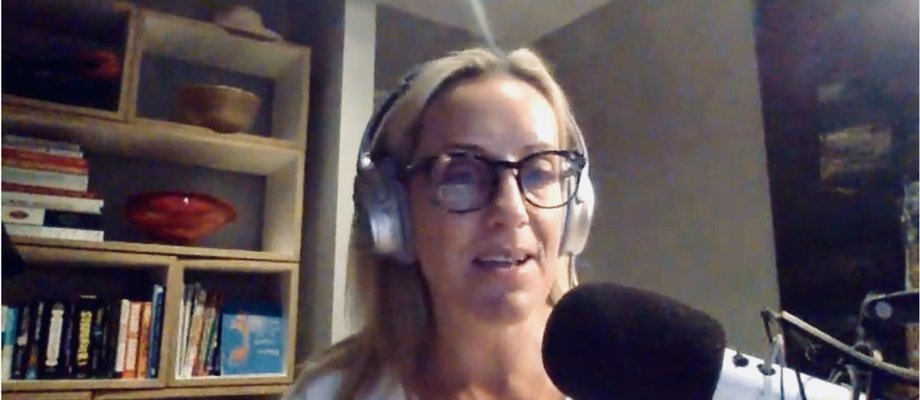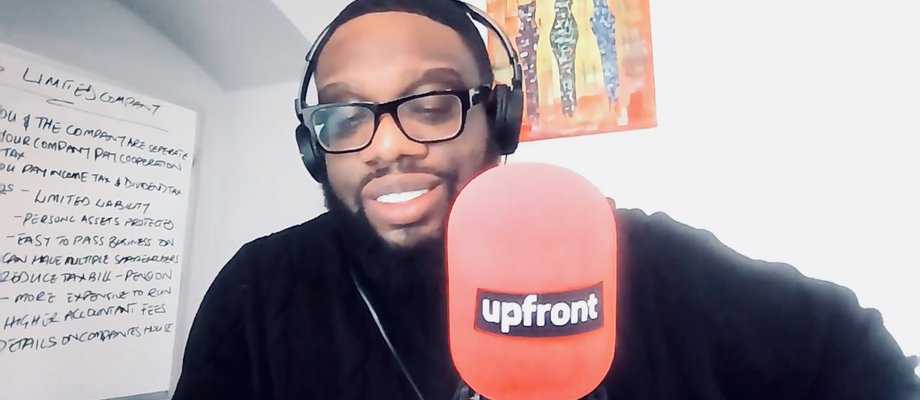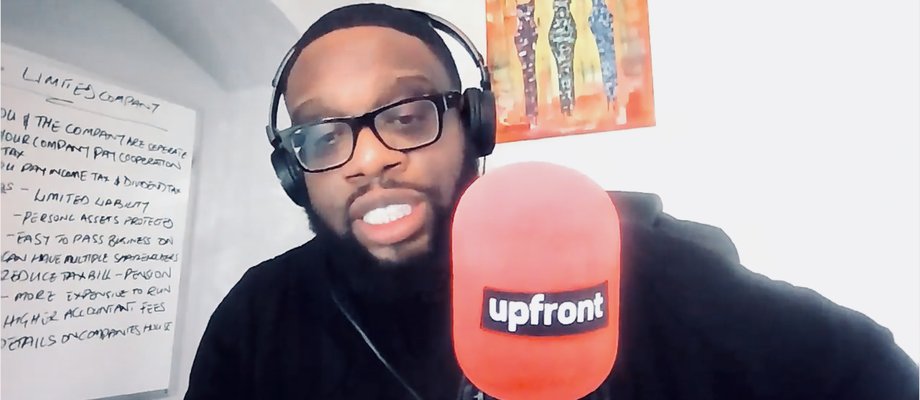In the third episode of the new series of the Upfront podcast, financial adviser Emmanuel Asuquo explores the gender wealth gap and what the industry should do about it with Future Females in Finance founder Camilla Love.
Here are some highlights from that conversation. Listen to the episode in full here.
Emmanuel: Camilla, tell us, are financial services failing women?
Camilla: I think that there are multiple ways to think about this. So, let's think about the gender gap in financial services. Oh my gosh, in Australia, it's about 27%. So, I'd say that's a bit of a fail. Then, think about how that equates to the superannuation gap. Australian women retire on half the amount of superannuation than their male counterparts. So I'd say that's a bit of a fail too. Now, let's look at the brighter side. The financial services industry is a fabulous place for women to work. A lot of organisations recognize that diversity is critical to profitability and good teamwork. Let's focus on the good things,

Emmanuel: Can you explain the gender gap? There are different variations of what people think this is. But can you actually define it so we can really understand what we're talking about today?
Camilla: So the gender gap in income is essentially if you as a male do a job and you get paid X and you as a female do the same job and get paid Y, what's the difference? And then what does it average out for the industry? The superannuation gap is if you are a male and female at the same age and have had the same income level over your career or salaried life, what the superannuation gap looks like. Those two gaps are enormous. There are a lot of people out there who think there are no issues here, and there are a lot of people who do, particularly in our female cohort.
Emmanuel: Here in the UK, we have similar gaps in both income and superannuation or pension as we call it over here.
They interviewed one female out of 15. I thought this is absolutely ridiculous. How can I change this?
Founder Future Females in Finance
Emmanuel: Why did you start Future Females in Finance?
Camilla Love: I want to leave a powerful legacy in my industry, and everywhere I touch because it's important to me. I want to leave it in a better place. I want to make sure that people can see someone has moved, and they can move in the footsteps or even just see those footsteps and make their own footsteps. I absolutely think that's a critical part of being a leader in any industry. I started Future Females in Finance about five years ago. F3 aims to educate young women about careers in finance, starting from year ten all the way through to the end of their journey at university. The backbone of it is a six-week online work experience program, where a group of five girls get thrown together to research, analyze, and solve a business problem with a corporate partner and alongside a mentor. So, the goal is not only to give them skills and confidence but also to give you the network to start your journey into financial services and to ask people about their careers. It also gives you something to put on your CV. So I describe it, you know, do you go to the gym?

Emmanuel: Oh yes. Not as much as I should, though. I should go a lot more. I pay more for the membership than I do.
Camilla: It's always the answer. Well, where do you see the girls in the gym? You find them all in the group classes and not on the weights floor. But the more often they go to the group classes, the more likely they turn up on the weights floor. That's what F3 is about. It's a collegiate and a grassroots, practical, scalable solution to try to get as many talented young women into finance as possible.
Emmanuel: It's amazing. So much more of us need to do this. We are so focused on hitting our targets and achieving our goals that we don't think about who we are bringing in behind us. How do I make sure that I'm not the only one in these rooms? How do I make sure other people can get in?
Camilla: Absolutely. And you've got to push everybody and pull everybody up that ladder. If you know someone younger or older, you know your peer level, whoever, and you think they're really awesome. Tell them they're really awesome. Tell them that they are doing a really great job, and tell them that they should be going for this role. Because, you know, if we all adopted someone like that, the industry would be in a better place.
Financial services have come a long way, but the pace is way too slow, and it's driving me nuts.
Founder Future Females in Finance
Emmanuel: How different do you think the financial sector would be culturally if there were more women at the top?
Camilla Love: It would be entirely different. I think the attributes of female leadership are entirely different to male leadership. There's lots and lots of different commercial organizations still out there in financial services, and there are people who have really old school ways of leadership, and that just doesn't fly anymore. So those leaders who are sitting in their glass offices and have their doors closed and just don't have access to the people on their floor, that is not what the next generation is looking for in their leadership, because they want to believe in you. They want to know that you are invested in their career, and it is absolutely critical that the next generation of leadership has a number of these real characteristics. Financial services have come a long way, but the pace it is going is way too slow and is absolutely driving me nuts. I read a statistic this week that said we would close the gender pay gap in 134 years here in Australia. Oh my God, that is ridiculous. And really, that change comes not only from the bottom, which, you know, F3 has a lot to do with, but it comes from those middle layers and the top. I was having this conversation with someone today and reading an article about a sales team that had made all these promotions. I think there were six promotions, and not one was female and it really kills me. So we need to see change in that CEO, CEOs, CEO level, because we all know you can't be what you can't see. And senior leadership in that female realm won't change at all if those C-suite leadership positions aren't filled with people who look, feel and lead like them. And so I can't wait for this change to happen. And if it takes 134 years, it's really disappointing.

Emmanuel: Do you feel that having more women in the profession will encourage more women to seek financial or investment advice?
Camilla Love: In Australia, 1 in 4 financial planners are female, which is sort of devastating, really. You know, if you're a couple, it's 50:50 essentially and more females have more control of their financial outcomes. If you can't talk to someone who looks like you, feels like you, and is looking after what your retirement might look like, it's devastating. So my goal is absolutely, the more females that get into the industry, the more people who want to access the industry in all its forms, if we can, if we can encourage that, that's wonderful.
In Australia, 1 in 4 financial planners are female, which is devastating really.
Founder Future Females in Finance
Emmanuel: Where do you think the industry needs to do more, to do better, to meet the needs of women? And how do you think they can go about it?
Camilla: I think it comes down to providing better access to advice. I describe it as the supply side and demand side. So there's the willingness to get advice, the confidence to be able to invest, and all that sort of stuff on the supply side. I'm hoping that, as women take more control over their financial future, they will create better outcomes and the industry will create better outcomes for females. We're seeing it here and there, definitely, but it needs to be on a scalable level and I don't think we're there yet.
Emmanuel: Do you think we'll still be talking about this in ten, fifteen, or twenty years?

Camilla: Absolutely. I guarantee we'll be talking about this in probably 150 years' time unless real, real change happens. I now believe in quotas on a whole bunch of stuff, and this is one of them. I think only real change can happen when quotas or targets get put in. Otherwise, we will be standing here in a 100 years time. And I tell you what, I'm not a woman of colour, right? If I were a woman of colour, we'd be be talking about this another 150 years after that. And that's super disappointing.
Emmanuel: I think it is so true. It makes me think about where we all have gone with women's sport. Here in the UK, women's football has just exploded, especially with the success of winning the Euros and doing something that the men haven't been able to do. And now stadiums are packed and there's more money being pumped into women's sport. So, I feel like something like that can happen in financial services. Finally, what message would you like to give the industry and to women starting out in it? Don't hold back.
Camilla: Go for it. It is an amazing industry to be involved in. It is super rewarding. no one day is the same. You are surrounded by so much intellect, so much data, so much information and you can make people money from this. I'm just so glad that the next generation is really looking at this industry as a purposeful career path. I can't wait to see where this industry goes in the next 20 or 25 years because of all that new talent. It's exciting.
Listen to this episode here or wherever you get your podcasts.
Meet our guest
Camilla Love
Camilla is a senior financial services executive and director with over 23 years of experience in the funds management industry. She currently serves as a Non-Executive Director for Perennial Venture Capital GP and as a Director for Perennial Investment Management Limited. She's also the founder of F3 - Future Females in Finance, a program that aims to foster and encourage young women to pursue a career in the financial services industry through education and work experience. Camilla is passionate about education, innovation, and diversity, and seeks to contribute to the growth and development of the financial sector and the wider community.
Loved this?
Then listen up
Upfront is the award-winning podcast for the financial services industry brought to you by Iress. Series 3 is out now, featuring 10 brand new episodes and conversations that everyone working in financial services needs to hear. Listen to Upfront on your favourite podcast app and follow so you never miss an episode.





